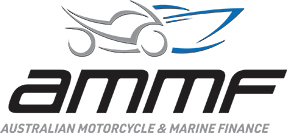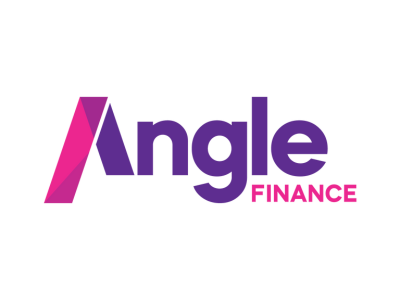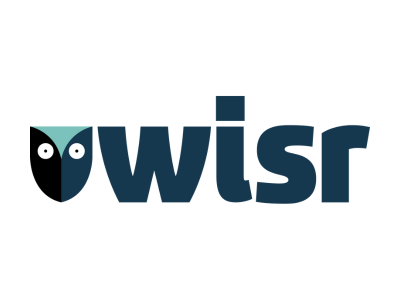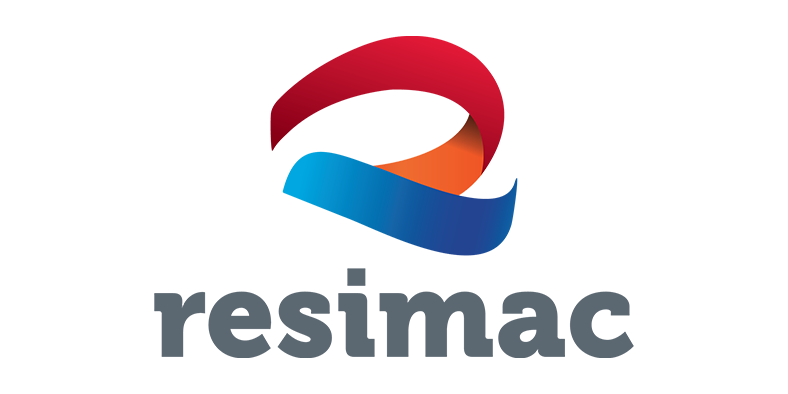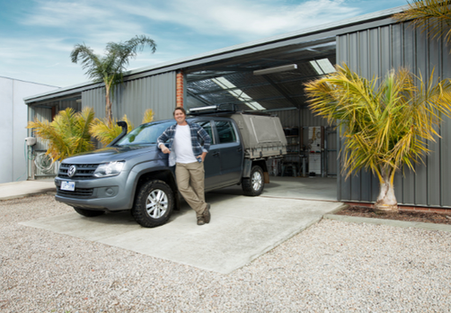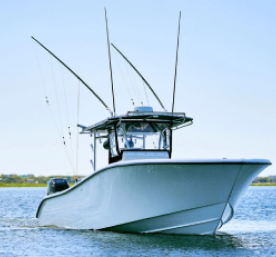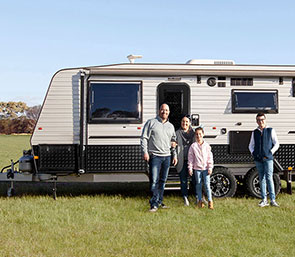Car finance allows you to lower your initial cash outlay, freeing up funds for other expenses.
For businesses, it can enhance cash flow and may provide tax benefits (consult your accountant). Car finance also enables access to better vehicles without the need for full upfront payment and typically offers fixed interest rates and predictable repayments. Some options even include balloon payments or early payoff options, providing you added financial flexibility.
Suggestions
No search results found
How can we help?

Car Finance Frequently Asked Questions
Secured car finance is a type of car loan where the car serves as collateral, providing the lender with security if payments aren’t made. By securing the loan with your vehicle, the lender's risk is reduced, often leading to advantages over an unsecured loan or personal loan. These advantages may include lower interest rates, higher borrowing limits, and longer repayment terms, making secured car finance a more attractive option for financing your vehicle.
Unsecured car finance, commonly referred to as a personal loan, allows you to borrow funds to purchase a car without holding security over the loan (unlike a Secured Car Loan). A benefit unsecured car finance/personal loans typically offer is flexible terms, ranging from 1 to 7 years. Unsecured car finance is an excellent option if the vehicle you want or your personal circumstances don’t qualify for a secured car loan.
New car finance usually comes with more attractive terms, like lower interest rates and longer repayment periods, due to the reduced risk for lenders. This can make financing new cars more affordable on a monthly basis, even if the total purchase price is higher.
On the other hand, used car finance often comes with increased interest rates due to perceived risk, though the loan amount is generally smaller since the vehicle cost is lower. Both new and used car finance options allow flexibility in choosing a plan that aligns with your budget and needs.
A pre-approval is a preliminary assessment by a lender that determines if you qualify for a loan and how much you can borrow. This typically involves submitting an application, verifying income and credit history, and undergoing a credit check.
A pre-approval provides you with a clear budget estimate for car shopping, showing the maximum amount a lender might offer under certain conditions. However, it’s important to note that a pre-approval is not a final loan commitment—just a first step in the loan process.
Business car finance enables companies to purchase or lease vehicles, spreading payments over time to support cash flow and potentially gain tax benefits. Generally, the lender retains ownership until the loan is repaid. With a Chattel Mortgage, however, the business gains immediate ownership, using the vehicle as loan security. The key difference between business car finance and a Chattel Mortgage is that a Chattel Mortgage arrangement places the asset on the company’s balance sheet, allowing possible tax deductions on depreciation and interest, depending on eligibility.
Car finance for electric vehicles (EVs) can often come with better terms than hybrid or petrol vehicles, as some lenders offer lower interest rates or incentives due to EVs’ environmental benefits. Additionally, certain government subsidies or tax incentives may assist in further reduce the overall cost of financing an EV. Hybrid and petrol cars can still have competitive finance options, usually with more lenders to choose from. Ultimately, choosing between options depends on specific incentives, total vehicle costs, and individual priorities around sustainability and long-term savings.
The amount of car finance you can borrow depends on several factors, including your income, credit history, existing debts, and the vehicle’s value. Lenders assess your repayment ability by reviewing your finances and setting limits based on a percentage of the car’s value. Use our serviceability calculator to estimate borrowing potential or visit our quote tool for a range of rates and repayments. To speak with an Australian-based broker, request a callback or call 1300 787 288.
With so many lenders to choose from, finding the right car finance option all by yourself can be challenging. That’s why we aim to match you with an expert finance broker who will take the time to understand what you’d like to buy, your purchasing goals, personal details, income, and expenses, allowing them to create a tailored preliminary assessment and present options for car finance that fit your budget and financial goals.
Residual values and balloon payments refer to a lump sum due at the end of a car finance term. While often used interchangeably, they do slightly differ. Residual value is based on the car's estimated market value at the end of the agreement, and commonly found with a lease agreement. Whereas a balloon payment is set at an agreed amount to pay out at the end of the agreement, and typically found in car loans. Both options reduce your regular payments but require a larger payment at the end, which you can either pay off, refinance, or use to trade in the vehicle.
A novated lease is a salary packaging arrangement where your employer leases a car for you, deducting payments from your pre-tax salary to potentially reduce your taxable income. With a novated lease, the car typically goes back to the leasing company at the end of the term unless you choose to purchase it. In contrast, traditional car finance involves taking out a loan in your name, where you own the car after repayment.
New car finance usually comes with more attractive terms, like lower interest rates and longer repayment periods, due to the reduced risk for lenders. This can make financing new cars more affordable on a monthly basis, even if the total purchase price is higher.
On the other hand, used car finance often comes with increased interest rates due to perceived risk, though the loan amount is generally smaller since the vehicle cost is lower. Both new and used car finance options allow flexibility in choosing a plan that aligns with your budget and needs.
The amount of car finance you can borrow depends on several factors, including your income, credit history, existing debts, and the vehicle’s value. Lenders assess your repayment ability by reviewing your finances and setting limits based on a percentage of the car’s value. Use our serviceability calculator to estimate borrowing potential or visit our quote tool for a range of rates and repayments. To speak with an Australian-based broker, request a callback or call 1300 787 288.
Typically, securing approval for a new car loan takes 24 to 48 hours, though this can vary by lender and application specifics. Working with a Stratton Finance broker can help expedite up the process.
Yes, many lenders allow early repayment of a new car loan, often with no or low penalties. However, it’s important to check your loan agreement for specific conditions and fees, as these can vary by lender. Your broker is the best person to help you navigate these details and ensure you make the most informed decision.
New car finance usually comes with more attractive terms, like lower interest rates and longer repayment periods, due to the reduced risk for lenders. This can make financing new cars more affordable on a monthly basis, even if the total purchase price is higher.
On the other hand, used car finance often comes with increased interest rates due to perceived risk, though the loan amount is generally smaller since the vehicle cost is lower. Both new and used car finance options allow flexibility in choosing a plan that aligns with your budget and needs.
The amount of car finance you can borrow depends on several factors, including your income, credit history, existing debts, and the vehicle’s value. Lenders assess your repayment ability by reviewing your finances and setting limits based on a percentage of the car’s value. Use our serviceability calculator to estimate borrowing potential or visit our quote tool for a range of rates and repayments. To speak with an Australian-based broker, request a callback or call 1300 787 288.
Typically, securing approval for a used car loan takes 24 to 48 hours, though this can vary by lender and application specifics. Working with a Stratton Finance broker can help streamline the process.
Yes, many lenders allow early repayment of a used car loan, often with no or low penalties. However, it’s important to check your loan agreement for specific conditions and fees, as these can vary by lender. Your broker is the best person to help you navigate these details and ensure you make the most informed decision.
Typically, securing approval for a personal car loan takes 24 to 48 hours, though this can vary by lender and application specifics. Working with a Stratton Finance broker can help expedite up the process
Yes, many lenders allow early repayment of a personal car loan, often with no or low penalties. However, it’s important to check your loan agreement for specific conditions and fees, as these can vary by lender. Your broker is the best person to help you navigate these details and ensure you make the most informed decision.
Yes, you can finance a used car through a personal car loan. This option may offer flexibility in terms of repayment and loan amounts. However, it’s essential to compare rates and terms to ensure it meets your financial needs.
The amount of car finance you can borrow depends on several factors, including your income, credit history, existing debts, and the vehicle’s value. Lenders assess your repayment ability by reviewing your finances and setting limits based on a percentage of the car’s value. Use our serviceability calculator to estimate borrowing potential or visit our quote tool for a range of rates and repayments. To speak with an Australian-based broker, request a callback or call 1300 787 288.
Yes, you can finance a car with an ABN. At Stratton Finance, we help ABN holders secure competitive finance options for their vehicles. Whether you're a sole trader or running a business, we work with various lenders to provide tailored solutions. Your broker will assess your situation and guide you through the process to find the best financing option for you.
A variety of vehicles are eligible for business car finance, including new and used cars, light commercial vehicles, trucks, vans, and certain specialty vehicles. Eligibility criteria may vary by lender and depend on the vehicle's intended business use.
Deciding between personal and business car finance comes down to how you'll use the vehicle. If it's mainly for business, opting for business car finance could give you tax advantages on interest and depreciation. If you're using it for personal or mixed purposes, personal car finance might be a better fit. Stratton’s expert brokers are here to help you figure out what works best for you.
The approval process for business car finance varies depending on the lender and application. At Stratton Finance, we aim for quick approvals—often within 24 to 48 hours—once all required documents are submitted. Your broker will guide you through the process for a smooth experience.
Not quite. An electric car loan specifically finances electric vehicles, while a green loan covers a broader range of eco-friendly options, including hybrids and fuel-efficient cars.
Both types of loans aim to support environmentally conscious choices, but green loans typically offer more flexibility regarding eligible vehicles. Since each lender has different requirements, consulting a broker can help you determine which option is right for you.
Car finance for electric vehicles (EVs) can often come with better terms than hybrid or petrol vehicles, as some lenders offer lower interest rates or incentives due to EVs’ environmental benefits. Additionally, certain government subsidies or tax incentives may assist in further reduce the overall cost of financing an EV. Hybrid and petrol cars can still have competitive finance options, usually with more lenders to choose from. Ultimately, choosing between options depends on specific incentives, total vehicle costs, and individual priorities around sustainability and long-term savings.
Yes, you can refinance an existing green car loan to secure a better interest rate, adjust your loan term, or lower monthly payments. At Stratton Finance, we can help you find refinancing options that align with your financial goals.
Yes, electric car loans are available for business vehicles. Whether you're looking to add EVs to your fleet or purchase one for business use, Stratton Finance can help you find financing options tailored to your business needs.
Electric car finance is typically secured, meaning the vehicle acts as collateral for the loan. This often allows for lower interest rates compared to unsecured loans. However, some lenders may offer unsecured finance options, depending on your financial situation.
Yes, you can often save money with a green car loan. Many lenders offer lower interest rates and special incentives for eco-friendly vehicles. Additionally, you may qualify for government rebates or tax reductions for purchasing a green car, enhancing your savings further.
Yes, you can switch lenders when refinancing, provided your existing loan allows you to exit. It’s often a good idea to work with a broker before choosing a new lender.
When refinancing your car loan, there are often options to adjust the loan term. However, since each lender has different policies, it's important to review the specific terms with them. A broker can help guide you through this process.
You can look to refinance your car loan anytime, but it's best to consult a Stratton Finance broker to determine if it could be the right time for you. Factors like the car's value, outstanding loan amount, loan terms, current interest rates, market conditions, and your personal circumstances all play a role in the decision to refinance.
Yes, we offer competitive rates on loans for a wide range of motorcycles, including quad bikes and tourers. Whether you're after a Yamaha, Kawasaki, or Harley Davidson, Stratton Finance can help.
Yes, we can help you finance both new and used motorbikes. Whether you're purchasing a brand-new bike or a second-hand one, Stratton Finance can assist in securing competitive interest rates.
Absolutely. Stratton Finance can help you get pre-approved for a motorbike loan, giving you the confidence to shop for your dream bike with a set spending limit.
Yes. Whether you're buying from a dealership or a private seller, Stratton Finance can organise finance for your second-hand bike. We also offer financing for other types of vehicles, including cars, boats, EVs, and camper trailers.
Secured car finance is a type of car loan where the car serves as collateral, providing the lender with security if payments aren’t made. By securing the loan with your vehicle, the lender's risk is reduced, often leading to advantages over an unsecured loan or personal loan. These advantages may include lower interest rates, higher borrowing limits, and longer repayment terms, making secured car finance a more attractive option for financing your vehicle.
The amount of car finance you can borrow depends on several factors, including your income, credit history, existing debts, and the vehicle’s value. Lenders assess your repayment ability by reviewing your finances and setting limits based on a percentage of the car’s value. Use our serviceability calculator to estimate borrowing potential or visit our quote tool for a range of rates and repayments. To speak with an Australian-based broker, request a callback or call 1300 787 288.
Approval for a secured car loan generally takes 24 to 48 hours, though this can vary by lender and application specifics. Working with a Stratton Finance broker can help speed up the process.
If you can’t repay your secured car loan, the lender has the right to repossess the vehicle to recover the outstanding balance. It's important to communicate with your lender if you're facing financial difficulties, as they may offer alternative solutions to help you avoid repossession.
Yes, you can refinance your secured car loan to take advantage of lower interest rates or better terms. This process involves obtaining a new loan to pay off the existing one, potentially leading to lower monthly payments or a shorter loan term. However, it's crucial to consider any associated fees and ensure that refinancing aligns with your financial goals.
Unsecured car finance, commonly referred to as a personal loan, allows you to borrow funds to purchase a car without holding security over the loan (unlike a Secured Car Loan). A benefit unsecured car finance/personal loans typically offer is flexible terms, ranging from 1 to 7 years. Unsecured car finance is an excellent option if the vehicle you want or your personal circumstances don’t qualify for a secured car loan.
Yes, it is possible to refinance your existing car loan with an unsecured finance option if you meet the lender's eligibility criteria. This can help you consolidate debt or secure better repayment terms. However, be sure to check for any fees or penalties linked to your current loan before proceeding.
Your credit score plays a crucial role in determining your loan eligibility. A higher score can lead to better interest rates and terms, while a lower score may limit your options. Understanding credit scores can be complex, so it's a good idea to consult with a Stratton Finance broker. They can help review your credit report and suggest ways to improve your chances of approval.
For details on claiming vehicle related tax deductions, it's best to check the Australian Taxation Office (ATO) website or consult with your accountant for personalised advice. They'll provide the most accurate and up-to-date information tailored to your circumstances.
The amount you can borrow for unsecured car finance depends on your income, credit history, existing debts, and the vehicle's value. Lenders assess your financial situation and usually set borrowing limits based on a percentage of the car's worth. To get an estimate of your borrowing capacity, you can use our serviceability calculator.
Commercial Loan Frequently Asked Questions
The approval time for a business loan can vary depending on the lender and the complexity of your application. On average, it can take anywhere from a few days to a couple of weeks. Having all necessary documentation ready, such as financial statements, business plans, and cash flow forecasts, can help speed up the process.
Repayment options for business finance can vary by lender, but they typically include fixed or variable interest rates with terms ranging from short to long-term. Some lenders offer flexible repayment schedules, such as monthly, quarterly, or seasonal payments, to align with your business cash flow.
Yes, new businesses can get finance, although approval may be more challenging without an established trading history. Lenders may place more emphasis on your business plan and personal financials or offer smaller loans initially. Some options include start-up loans, equipment financing, or working capital finance.
Choosing the right finance option depends on your business needs, goals, and financial situation. Factors like the amount of funding required, the purpose of the loan, and your ability to repay should be considered. A broker can help assess your situation and present tailored options based on your requirements.
To improve your chances of getting business finance, ensure you have a strong business plan, up-to-date financial records, and a clear understanding of your cash flow. Maintaining a good credit score and demonstrating stable revenue or future profitability can also enhance your application.
Cash flow finance enables businesses to use future cash flows, such as outstanding invoices, as collateral to secure additional funding for operational needs and growth. This option bridges the gap between incurred expenses and received income, ensuring businesses maintain liquidity and operational continuity.
Businesses with longer payment terms on invoices, particularly small to medium-sized enterprises, can greatly benefit from cash flow financing to manage their financial needs.
Approval for cash flow finance typically takes 24 to 48 hours, although this timeframe can vary depending on the lender and the details of your application. Partnering with a Stratton Finance broker can help speed up the process.
Yes, cash flow financing can be utilised for a range of business expenses. This includes:
Operational costs
Payroll
Inventory purchases
Marketing initiatives
Equipment or technology upgrades
There are various forms of cash flow funding available, including:
Invoice Financing: Businesses receive immediate cash advances based on outstanding invoices, improving liquidity without waiting for customers to pay.
Lines of Credit: Flexible borrowing options allow businesses to withdraw funds as needed up to a predetermined limit, providing quick access to cash for unforeseen expenses.
Factoring: A company sells its receivables to a third party at a discount, gaining immediate cash flow while outsourcing the collection process
Both businesses and individuals are eligible for a chattel mortgage as long as the car is used predominantly for business purposes.
A chattel mortgage is a good choice for those registered for GST on a cash accounting basis, as you should be able to claim the GST from the vehicle’s purchase price as an Input Tax Credit on your next Business Activity Statement.
A chattel mortgage can finance a wide range of business-use vehicles and equipment, including cars, trucks, vans, and commercial vehicles, as well as machinery, tools, and technology required for business operations.
A balloon payment is a lump sum amount due at the end of the loan term. Including a balloon payment in your chattel mortgage lowers your monthly repayments during the loan term, making it more affordable. The balloon amount can be refinanced or paid in full at the end of the contract.
Benefits of a chattel mortgage include flexible loan repayment periods, the option to reduce the monthly repayments by setting a final balance (residual value or balloon), the potential to claim tax deductions if the car is used for business purposes* and the potential to claim Input Tax Credits if you are registered for GST*
A chattel mortgage can also have additional benefits (subject to lender selection), including a fixed interest rate and monthly repayments for the duration of the loan, as well as repayments that can be aligned with your or your business's cash flow.
*Please check with your accountant for eligibility
If the car is being used for business purposes, you may be able to claim a tax deduction on the loan interest charges, as well as on the depreciation value of the vehicle, up to the Depreciation Limit set by the Australian Tax Office. Speak to your accountant to find out more.
An unsecured business loan is a type of financing that doesn’t require any collateral. Approval is based on your creditworthiness, business performance, and financial history. This type of loan allows businesses to access funds quickly without putting assets at risk.
The key difference is collateral. Secured business finance requires you to provide an asset, such as property or equipment, as security for the loan. In contrast, unsecured business finance doesn’t require collateral, which makes it more accessible, but it often comes with higher interest rates.
An unsecured business loan can be used for purchasing equipment, hiring staff, marketing, expanding operations, or managing cash flow. It offers flexibility to support your business growth without the need for collateral.
Interest rates are higher for unsecured business loans because the lender takes on more risk by not requiring collateral. Without an asset to secure the loan, lenders charge higher rates to compensate for the increased potential risk.
Unsecured business finance is ideal for small to medium-sized businesses that need quick access to funds but may not have substantial assets to offer as collateral. It suits companies looking for short-term financing to support growth, manage cash flow, or cover unexpected expenses.
Debtor finance, also known as invoice finance, is a financial solution that enables businesses to use their unpaid invoices as collateral to access immediate funding. By leveraging these invoices, companies can receive a percentage of their total value upfront. This method is particularly beneficial for businesses with longer invoice payment terms, as it reduces the time they need to wait for customer payments.
Debtor financing is well-suited for small businesses that frequently invoice other companies and need quick access to working capital. It provides a viable alternative for those who may not qualify for traditional loans due to limited credit histories or assets.
Additionally, this flexible funding method allows small businesses to adjust their financing according to invoicing and sales growth.
Approval for debtor finance generally takes 24 to 48 hours, though this timeframe may vary based on the lender and the specifics of your application. Working with a Stratton Finance broker can help expedite the process.
Invoices issued to other businesses on trade credit terms are eligible for debtor finance. They must represent legitimate sales from reliable, creditworthy customers. Businesses should submit outstanding, well-documented invoices, as lenders prefer customers with a history of timely payments to minimise risk and increase funding chances.
For commercial equipment finance, several types of options are available to suit different business needs. This includes:
Equipment Lease: Allows businesses to rent equipment for a set period without ownership. It’s ideal for businesses that need equipment with a short lifecycle or want to conserve capital.
Equipment Loan: This option enables businesses to purchase equipment and gradually pay it off over time. Ownership of the equipment is typically transferred to the business at the end of the loan term.
Hire Purchase: In a hire purchase agreement, businesses can use the equipment while making payments over time, with ownership transferring at the end of the term once the final payment is made.
Chattel Mortgage: This is a secured loan where the business owns the equipment from the start, and the lender holds a mortgage over it until the loan is paid off.
Operating Lease: Suitable for businesses that need flexibility, as it allows for equipment usage without the intention of ownership. Typically, the business returns the equipment at the end of the lease term.
Finance Lease: Similar to an equipment lease, but at the end of the term, businesses often have the option to purchase the equipment or continue leasing it with reduced payments.
Each option has its unique benefits depending on factors like cash flow, ownership preference, and the expected lifespan of the equipment.
When you buy equipment, you own it outright, either through direct purchase or by using financing like a chattel mortgage. This provides long-term use and potential tax deductions but requires a larger upfront investment.
Leasing allows you to use the equipment without owning it, with the option to purchase it at the end of the lease in some cases. It requires lower initial payments and provides flexibility to upgrade, but you won't own the asset during the lease period.
Commercial equipment financing can cover a wide range of business-related assets, including:
Vehicles such as cars, trucks, vans, and machinery
Construction equipment like excavators, loaders, and cranes
Business fitouts and office technology, such as computers, printers, and software
Manufacturing and industrial machinery
Medical or dental equipment
Agricultural equipment, including tractors and harvesters
The eligibility often depends on the lender and whether the equipment is used for business purposes.
If the asset is being used for business purposes, you may be able to claim a tax deduction on the loan interest charges, as well as on the depreciation value of the asset, up to the Depreciation Limit set by the Australian Tax Office. Speak to your accountant to find out more.
A construction loan is a short-term financing solution tailored for businesses that need funds to build or expand their facilities. The loan is typically drawn down in stages as the project progresses, with repayments based on the amount disbursed. This structure helps align financing with the stages of construction, reducing interest costs as you only pay interest on the amount used.
Construction loans can be used for various business development purposes, such as building new facilities, expanding existing premises, renovating commercial spaces, or even developing large-scale projects. The funds can cover costs like materials, labour, permits, and other project-related expenses.
Repayment terms for construction loans can vary based on the lender and the specifics of your project. Generally, construction loans are structured as interest-only during the construction phase, with the option to refinance into a long-term loan upon project completion. Stratton Finance will work with you to tailor a repayment plan that suits your cash flow and financial goals.
To apply for a construction loan, you’ll need to provide a detailed project plan, cost estimates, permits, and financial statements. This helps the lender assess the feasibility and scope of your project. Our brokers at Stratton Finance will guide you through the application process, ensuring you have the right documentation in place for a smooth experience.
Construction loans are specifically designed for projects that involve building or major renovations, with funds released in stages to match the construction timeline. In contrast, a standard business loan is typically provided as a lump sum and doesn’t cater to the specific needs of construction projects. A construction loan offers more flexibility, allowing you to draw down funds as needed and make interest-only payments during the build.
Caravan Finance Frequently Asked Questions
Secured caravan finance is a loan that involves the lender taking security of the asset against the funds you have borrowed, in this case, the caravan, motorhome or camper trailer itself. This means that if you're unable to make your loan repayments, the lender is protected by having security over the asset.
Secured caravan finance can offer advantages over an unsecured loan (personal loan) because, with your caravan as security, the lender may be more likely to offer better terms, including longer repayment periods, higher borrowing limits and lower interest rates.
Unsecured caravan finance, is a better known as a personal loan, involves a lender providing funds to purchase a caravan of your choice without holding security over the asset.
One of the benefits of an unsecured caravan finance is that terms are usually flexible, ranging from 1 to 7 years. It is also a great option when the caravan, motorhome or camper trailer you are looking to purchase doesn’t meet the criteria for a secured caravan loan.
Caravan finance allows you to reduce your upfront cash outlay, freeing up funds for other needs. For businesses, it can help improve cash flow and may offer tax benefits (consult your accountant for details).
Caravan finance also provides flexibility, giving the buyer a wider range of purchasing options without the full payment upfront. Additionally, it often comes with fixed interest rates and predictable repayments, helping you manage your budget more effectively. Some options even allow for balloon payments, giving you extra financial flexibility.
New caravan finance often provides lower interest rates and longer loan terms because the caravan is brand new and retains a higher value.
In contrast, used caravan finance may come with slightly higher interest rates and shorter loan terms, reflecting the depreciation of the asset.
However, both new and used caravan finance options offer flexible repayment structures and can be tailored to fit your budget and financial needs.
A pre-approval is an initial evaluation performed by a lender to assess your eligibility for a loan and determine the amount you may qualify to borrow. This process usually requires you to submit an application, provide documentation such as income verification and credit history, and undergo a credit check.
Obtaining a pre-approval gives you a clearer picture of your budget while searching for a caravan, as it indicates the maximum amount the lender is willing to extend under specific conditions. However, it’s important to remember that a pre-approval does not constitute a final commitment for a caravan loan; rather indicates that a lender is willing to lend you a certain amount based on your financial situation, but it is not a guarantee of the final loan approval. The final commitment will depend on further verification and approval processes.
The amount of caravan finance you may qualify for is influenced by several factors, including your:
- Income
- Credit history
- Existing debts
- The vehicle's appraised value.
Lenders evaluate your repayment capacity by analysing your financial profile and applying lending limits based on a percentage of the caravan's worth.
For a clearer understanding of your borrowing potential, please use our serviceability calculator. To explore a variety of rates and repayment options, we invite you to visit our online quote tool. Alternatively, you may wish to consult with one of our Australian-based brokers today by requesting a callback or by calling 1300 787 288.
With a multitude of lenders to choose from, it can be tricky to navigate and find the best option that works for you. That’s why we aim to match you with an expert finance broker who will take the time to understand what you’d like to buy, as well as your personal details, work history, income, and expenses, to create a tailored preliminary assessment for your caravan finance. They will then present options tailored to your budget and financial goals
Residual values and balloon payments refer to lump sums due at the end of a caravan finance agreement. A residual value, commonly used in leases, indicates the estimated market value of the caravan at the lease's conclusion. In contrast, a balloon payment applies to caravan loans, enabling borrowers to lower their monthly repayments by deferring part of the loan balance to the end of the term. While both options reduce regular payment amounts, they require a larger sum at maturity, which can be paid off, refinanced, or managed through a trade-in of the vehicle.
We're well aware of the tried and tested tactics to get the best price on your new caravan, motorhome or camper trailer. Below is a summary that will help you breeze through the purchasing process and beyond:
Choose the right type of caravan for your needs
Do plenty of research
Understand when is the best time to buy
Be prepped and ready for the negotiation process (we have essential negotiating tips)
Ensure you have your finance pre-approved
New caravan finance often provides lower interest rates and longer loan terms because the caravan is brand new and retains a higher value.
In contrast, used caravan finance may come with slightly higher interest rates and shorter loan terms, reflecting the depreciation of the asset.
However, both new and used caravan finance options offer flexible repayment structures and can be tailored to fit your budget and financial needs.
A pre-approval is an initial evaluation performed by a lender to assess your eligibility for a loan and determine the amount you may qualify to borrow. This process usually requires you to submit an application, provide documentation such as income verification and credit history, and undergo a credit check.
Obtaining a pre-approval gives you a clearer picture of your budget while searching for a caravan, as it indicates the maximum amount the lender is willing to extend under specific conditions. However, it’s important to remember that a pre-approval does not constitute a final commitment for a caravan loan; rather indicates that a lender is willing to lend you a certain amount based on your financial situation, but it is not a guarantee of the final loan approval. The final commitment will depend on further verification and approval processes.
The amount of caravan finance you may qualify for is influenced by several factors, including your:
- Income
- Credit history
- Existing debts
- The vehicle's appraised value.
Lenders evaluate your repayment capacity by analysing your financial profile and applying lending limits based on a percentage of the caravan's worth.
For a clearer understanding of your borrowing potential, please use our serviceability calculator. To explore a variety of rates and repayment options, we invite you to visit our online quote tool. Alternatively, you may wish to consult with one of our Australian-based brokers today by requesting a callback or by calling 1300 787 288.
With a multitude of lenders to choose from, it can be tricky to navigate and find the best option that works for you. That’s why we aim to match you with an expert finance broker who will take the time to understand what you’d like to buy, as well as your personal details, work history, income, and expenses, to create a tailored preliminary assessment for your caravan finance. They will then present options tailored to your budget and financial goals
Residual values and balloon payments refer to lump sums due at the end of a caravan finance agreement. A residual value, commonly used in leases, indicates the estimated market value of the caravan at the lease's conclusion. In contrast, a balloon payment applies to caravan loans, enabling borrowers to lower their monthly repayments by deferring part of the loan balance to the end of the term. While both options reduce regular payment amounts, they require a larger sum at maturity, which can be paid off, refinanced, or managed through a trade-in of the vehicle.
Used caravan finance often comes with higher interest rates due to the perceived risk for lenders, but the overall loan amount is typically smaller since the asset's price is lower.
In contrast, new caravan finance generally offers more attractive loan terms, including lower interest rates and longer repayment periods, making it more affordable on a monthly basis despite the higher total price.
A pre-approval is an initial evaluation performed by a lender to assess your eligibility for a loan and determine the amount you may qualify to borrow. This process usually requires you to submit an application, provide documentation such as income verification and credit history, and undergo a credit check.
Obtaining a pre-approval gives you a clearer picture of your budget while searching for a caravan, as it indicates the maximum amount the lender is willing to extend under specific conditions. However, it’s important to remember that a pre-approval does not constitute a final commitment for a caravan loan; rather indicates that a lender is willing to lend you a certain amount based on your financial situation, but it is not a guarantee of the final loan approval. The final commitment will depend on further verification and approval processes.
The amount of caravan finance you may qualify for is influenced by several factors, including your:
- Income
- Credit history
- Existing debts
- The vehicle's appraised value.
Lenders evaluate your repayment capacity by analysing your financial profile and applying lending limits based on a percentage of the caravan's worth.
For a clearer understanding of your borrowing potential, please use our serviceability calculator. To explore a variety of rates and repayment options, we invite you to visit our online quote tool. Alternatively, you may wish to consult with one of our Australian-based brokers today by requesting a callback or by calling 1300 787 288.
With a multitude of lenders to choose from, it can be tricky to navigate and find the best option that works for you. That’s why we aim to match you with an expert finance broker who will take the time to understand what you’d like to buy, as well as your personal details, work history, income, and expenses, to create a tailored preliminary assessment for your caravan finance. They will then present options tailored to your budget and financial goals
Residual values and balloon payments refer to lump sums due at the end of a caravan finance agreement. A residual value, commonly used in leases, indicates the estimated market value of the caravan at the lease's conclusion. In contrast, a balloon payment applies to caravan loans, enabling borrowers to lower their monthly repayments by deferring part of the loan balance to the end of the term. While both options reduce regular payment amounts, they require a larger sum at maturity, which can be paid off, refinanced, or managed through a trade-in of the vehicle.
Secured finance involves the lender having security against the borrowed amount, using the caravan, motorhome, or camper trailer as collateral. This often results in better terms, such as lower interest rates and longer repayment periods.
In contrast, unsecured finance, often referred to as a personal loan, offers funds without the need for collateral. It typically comes with flexible terms, ranging from 1 - 7 years, making it a suitable option if the asset or your financial situation doesn’t meet the criteria for secured financing.
A pre-approval is an initial evaluation performed by a lender to assess your eligibility for a loan and determine the amount you may qualify to borrow. This process usually requires you to submit an application, provide documentation such as income verification and credit history, and undergo a credit check.
Obtaining a pre-approval gives you a clearer picture of your budget while searching for a caravan, as it indicates the maximum amount the lender is willing to extend under specific conditions. However, it’s important to remember that a pre-approval does not constitute a final commitment for a caravan loan; rather indicates that a lender is willing to lend you a certain amount based on your financial situation, but it is not a guarantee of the final loan approval. The final commitment will depend on further verification and approval processes.
The amount of caravan finance you may qualify for is influenced by several factors, including your:
- Income
- Credit history
- Existing debts
- The vehicle's appraised value.
Lenders evaluate your repayment capacity by analysing your financial profile and applying lending limits based on a percentage of the caravan's worth.
For a clearer understanding of your borrowing potential, please use our serviceability calculator. To explore a variety of rates and repayment options, we invite you to visit our online quote tool. Alternatively, you may wish to consult with one of our Australian-based brokers today by requesting a callback or by calling 1300 787 288.
With a multitude of lenders to choose from, it can be tricky to navigate and find the best option that works for you. That’s why we aim to match you with an expert finance broker who will take the time to understand what you’d like to buy, as well as your personal details, work history, income, and expenses, to create a tailored preliminary assessment for your caravan finance. They will then present options tailored to your budget and financial goals
Residual values and balloon payments refer to lump sums due at the end of a caravan finance agreement. A residual value, commonly used in leases, indicates the estimated market value of the caravan at the lease's conclusion. In contrast, a balloon payment applies to caravan loans, enabling borrowers to lower their monthly repayments by deferring part of the loan balance to the end of the term. While both options reduce regular payment amounts, they require a larger sum at maturity, which can be paid off, refinanced, or managed through a trade-in of the vehicle.
Unsecured finance, often referred to as a personal loan, offers funds without the need for collateral. It typically comes with flexible terms, ranging from 1 - 7 years, making it a suitable option if the asset or your financial situation doesn’t meet the criteria for secured financing.
In contrast, secured finance involves the lender having security against the borrowed amount, using the caravan, motorhome, or camper trailer as collateral. This often results in better terms, such as lower interest rates and longer repayment periods.
A pre-approval is an initial evaluation performed by a lender to assess your eligibility for a loan and determine the amount you may qualify to borrow. This process usually requires you to submit an application, provide documentation such as income verification and credit history, and undergo a credit check.
Obtaining a pre-approval gives you a clearer picture of your budget while searching for a caravan, as it indicates the maximum amount the lender is willing to extend under specific conditions. However, it’s important to remember that a pre-approval does not constitute a final commitment for a caravan loan; rather indicates that a lender is willing to lend you a certain amount based on your financial situation, but it is not a guarantee of the final loan approval. The final commitment will depend on further verification and approval processes.
The amount of caravan finance you may qualify for is influenced by several factors, including your:
- Income
- Credit history
- Existing debts
- The vehicle's appraised value.
Lenders evaluate your repayment capacity by analysing your financial profile and applying lending limits based on a percentage of the caravan's worth.
For a clearer understanding of your borrowing potential, please use our serviceability calculator. To explore a variety of rates and repayment options, we invite you to visit our online quote tool. Alternatively, you may wish to consult with one of our Australian-based brokers today by requesting a callback or by calling 1300 787 288.
With a multitude of lenders to choose from, it can be tricky to navigate and find the best option that works for you. That’s why we aim to match you with an expert finance broker who will take the time to understand what you’d like to buy, as well as your personal details, work history, income, and expenses, to create a tailored preliminary assessment for your caravan finance. They will then present options tailored to your budget and financial goals
Residual values and balloon payments refer to lump sums due at the end of a caravan finance agreement. A residual value, commonly used in leases, indicates the estimated market value of the caravan at the lease's conclusion. In contrast, a balloon payment applies to caravan loans, enabling borrowers to lower their monthly repayments by deferring part of the loan balance to the end of the term. While both options reduce regular payment amounts, they require a larger sum at maturity, which can be paid off, refinanced, or managed through a trade-in of the vehicle.
Boat Finance Frequently Asked Questions
Secured boat finance is a loan that involves the lender take security of the asset against the funds you have borrowed, in this case the boat itself. This means that if you're unable to make your loan repayments, the lender is protected by having security over the asset.
Secured boat finance can offer advantages over an unsecured loan (Personal Loan) because, with your boat as security, the lender may be more likely to offer better terms, including longer repayment periods, higher borrowing limits and lower interest rates.
Unsecured boat finance, is better known as a personal loan, with the lender providing funds to purchase a boat of your choice without holding security over the asset.
One of the benefits of an unsecured boat finance is that terms are usually flexible, ranging from 1 to 7 years. It is also a great option when the boat you are looking to purchase doesn’t meet the criteria for a secured boat loan.
Boat finance allows you to reduce your upfront cash outlay, freeing up funds for other needs. For businesses, it can help improve cash flow and may offer tax benefits (consult your accountant for details).
Boat finance also provides flexibility, giving the buyer a wider range of purchasing options without the full payment upfront. Additionally, it often comes with fixed interest rates and predictable repayments, helping you manage your budget more effectively. Some options even allow for balloon payments, giving you added financial flexibility.
New boat finance typically comes with more attractive loan terms due to the lower risk for lenders, including lower interest rates and longer repayment periods. This can make new boats more affordable on a monthly basis, even if the total price is higher.
On the other hand, used boat finance often has higher interest rates because of the perceived risk, but the overall loan amount tends to be smaller due to the lower price of the asset. Both options provide flexibility, allowing you to choose the financing plan that best suits your budget and needs.
A pre-approval is a preliminary assessment by a lender that determines if you qualify for a loan and how much you can borrow. It typically involves submitting an application, providing documentation such as income verification and credit history, and undergoing a credit check.
A pre-approval gives you a clearer idea of your budget when shopping for a boat, as it indicates the maximum amount the lender is willing to offer you under certain conditions. It's important to note that a pre-approval is not a final boat loan commitment but rather indicates that a lender is willing to lend you a certain amount based on your financial situation, but it is not a guarantee of the final loan approval. The final commitment will depend on further verification and approval processes.
The amount of boat finance you can borrow depends on several factors, including your income, credit history, existing debts, and the value of the vehicle. Lenders assess your ability to repay by reviewing your financial situation and applying lending limits based on a percentage of the boat's value. To understand more, use our serviceability calculator to get a guide on how much you can borrow. To explore a range of rates and repayments, visit our online quote tool. Or, speak to an Australian-based broker today—request a call back or call 1300 787 288.
With a multitude of lenders to choose from, it can be tricky to navigate and find the best option that works for you. That’s why we aim to match you with an expert finance broker who will take the time to understand what you’d like to buy, as well as your personal details, work history, income, and expenses, to create a tailored preliminary assessment for your boat finance. They will then deliver options that align with your budget and financial goals.
Residual values and balloon payments refer to a lump sum due at the end of a boat finance term. A residual value is commonly used in leases and reflects the estimated value of the boat at the end of the agreement. A balloon payment is a similar concept but applies to boat loans, allowing you to reduce monthly repayments by deferring a portion of the loan to the end of the term. Both options lower your regular payments but require a larger sum at the end, which you can either pay off, refinance, or trade in the vehicle.
We're well aware of the tried and tested tactics to get the best price on your new boat. Below is a short summary that will help you breeze through the purchasing process and beyond:
- Choose the right type of boat for your needs
- Do plenty of research
- Understand when is the best time to buy
- Be prepped and ready for the negotiation process (we have essential negotiating tips)
- Ensure you have your finance pre-approved
Secured Jet Ski finance is a type of boat loan that involves the lender having security against the money you've borrowed from them, in this case the Jet Ski itself. This means that if you're unable to make your loan repayments, the lender is protected by having security over the asset.
Secured Jet Ski finance can offer advantages over an unsecured loan (such as a Personal Loan) because, with your Jet Ski as security, the lender may be more likely to offer better terms, including longer repayment periods, higher borrowing limits and lower interest rates.
Unsecured Jet Ski finance, also known as a Personal Loan, involves a lender providing funds to purchase a Jet Ski of your choice without holding security over the loan (unlike a Secured Jet Ski Loan).
Benefits of unsecured Jet Ski finance/personal loans are that terms are usually flexible, ranging from 1 to 7 years. Unsecured Jet Skit finance is also a great option when the boat you are looking to purchase, and your personal situation don’t meet the criteria for a secured boat loan.
Jet Ski finance allows you to reduce your upfront cash outlay, freeing up funds for other needs. For businesses, it can help improve cash flow and may offer tax benefits (consult your accountant for details).
Jet Ski finance also provides flexibility, giving the buyer a wider range of purchasing options without the full payment upfront. Additionally, it often comes with fixed interest rates and predictable repayments, helping you manage your budget more effectively. Some options even allow for balloon payments or early pay-off, giving you added financial flexibility.
New Jet Ski finance typically comes with more attractive loan terms due to the lower risk for lenders, including lower interest rates and longer repayment periods. This can make new Jet Ski’s more affordable on a monthly basis, even if the total price is higher.
On the other hand, used Jet Ski finance often has higher interest rates because of the perceived risk, but the overall loan amount tends to be smaller due to the lower price of the asset. Both options provide flexibility, allowing you to choose the financing plan that best suits your budget and needs.
A pre-approval is a preliminary assessment by a lender that determines if you qualify for a loan and how much you can borrow. It typically involves submitting an application, providing documentation such as income verification and credit history, and undergoing a credit check.
A pre-approval gives you a clearer idea of your budget when shopping for a Jet Ski, as it indicates the maximum amount the lender is willing to offer you under certain conditions. It's important to note that a pre-approval is not a final Jet Ski loan commitment but rather indicates that a lender is willing to lend you a certain amount based on your financial situation, but it is not a guarantee of the final loan approval. The final commitment will depend on further verification and approval processes.
The amount of Jet Ski finance you can obtain depends on several factors, including your income, credit history, existing debts, and the value of the vehicle. Lenders assess your ability to repay by reviewing your financial situation and applying lending limits based on a percentage of the boat's value. To understand more, use our serviceability calculator to get a guide on how much you can borrow. To explore a range of rates and repayments, visit our online quote tool. Or, speak to an Australian-based broker today—request a call back or call 1300 787 288.
With a multitude of lenders to choose from, it can be tricky to navigate and find the best option that works for you. That’s why we aim to match you with an expert finance broker who will take the time to understand what you’d like to buy, as well as your personal details, work history, income, and expenses, to create a tailored preliminary assessment for your Jet Ski finance. They will then deliver options that align with your budget and financial goals.
Residual values and balloon payments refer to a lump sum due at the end of a Jet Ski finance term. A residual value is commonly used in leases and reflects the estimated value of the Jet Ski at the end of the agreement. A balloon payment is a similar concept but applies to Jet Ski loans, allowing you to reduce monthly repayments by deferring a portion of the loan to the end of the term. Both options lower your regular payments but require a larger sum at the end, which you can either pay off, refinance, or trade in the asset.
We're well aware of the tried and tested tactics to get the best price on your Jet Ski. Below is a short summary that will help you breeze through the purchasing process and beyond:
- Choose the right type of Jet Ski for your needs
- Do plenty of research (Read consumer reviews)
- Understand when is the best time to buy
- Be prepped and ready for the negotiation process (we have essential negotiating tips)
- Ensure you have your finance pre-approved
New boat finance typically comes with more attractive loan terms due to the lower risk for lenders, including lower interest rates and longer repayment periods. This can make new boats more affordable on a monthly basis, even if the total price is higher.
On the other hand, used boat finance often has higher interest rates because of the perceived risk, but the overall loan amount tends to be smaller due to the lower price of the asset. Both options provide flexibility, allowing you to choose the financing plan that best suits your budget and needs.
A pre-approval is a preliminary assessment by a lender that determines if you qualify for a loan and how much you can borrow. It typically involves submitting an application, providing documentation such as income verification and credit history, and undergoing a credit check.
A pre-approval gives you a clearer idea of your budget when shopping for a boat, as it indicates the maximum amount the lender is willing to offer you under certain conditions. It's important to note that a pre-approval is not a final boat loan commitment but rather indicates that a lender is willing to lend you a certain amount based on your financial situation, but it is not a guarantee of the final loan approval. The final commitment will depend on further verification and approval processes.
The amount of boat finance you can borrow depends on several factors, including your income, credit history, existing debts, and the value of the vehicle. Lenders assess your ability to repay by reviewing your financial situation and applying lending limits based on a percentage of the boat's value. To understand more, use our serviceability calculator to get a guide on how much you can borrow. To explore a range of rates and repayments, visit our online quote tool. Or, speak to an Australian-based broker today—request a call back or call 1300 787 288.
With a multitude of lenders to choose from, it can be tricky to navigate and find the best option that works for you. That’s why we aim to match you with an expert finance broker who will take the time to understand what you’d like to buy, as well as your personal details, work history, income, and expenses, to create a tailored preliminary assessment for your boat finance. They will then deliver options that align with your budget and financial goals.
Residual values and balloon payments refer to a lump sum due at the end of a boat finance term. A residual value is commonly used in leases and reflects the estimated value of the boat at the end of the agreement. A balloon payment is a similar concept but applies to boat loans, allowing you to reduce monthly repayments by deferring a portion of the loan to the end of the term. Both options lower your regular payments but require a larger sum at the end, which you can either pay off, refinance, or trade in the vehicle.
We're well aware of the tried and tested tactics to get the best price on your new boat. Below is a short summary that will help you breeze through the purchasing process and beyond:
Choose the right type of boat for your needs
Do plenty of research
Understand when is the best time to buy
Be prepped and ready for the negotiation process (we have essential negotiating tips)
Ensure you have your finance pre-approved
Used boat finance often has higher interest rates because of the perceived risk, but the overall loan amount tends to be smaller due to the lower price of the asset. Both options provide flexibility, allowing you to choose the financing plan that best suits your budget and needs.
On the other hand, new boat finance typically comes with more attractive loan terms due to the lower risk for lenders, including lower interest rates and longer repayment periods. This can make new boats more affordable on a monthly basis, even if the total price is higher.
A pre-approval is a preliminary assessment by a lender that determines if you qualify for a loan and how much you can borrow. It typically involves submitting an application, providing documentation such as income verification and credit history, and undergoing a credit check.
A pre-approval gives you a clearer idea of your budget when shopping for a boat, as it indicates the maximum amount the lender is willing to offer you under certain conditions. It's important to note that a pre-approval is not a final boat loan commitment but rather indicates that a lender is willing to lend you a certain amount based on your financial situation, but it is not a guarantee of the final loan approval. The final commitment will depend on further verification and approval processes.
The amount of boat finance you can borrow depends on several factors, including your income, credit history, existing debts, and the value of the vehicle. Lenders assess your ability to repay by reviewing your financial situation and applying lending limits based on a percentage of the boat's value. To understand more, use our serviceability calculator to get a guide on how much you can borrow. To explore a range of rates and repayments, visit our online quote tool. Or, speak to an Australian-based broker today—request a call back or call 1300 787 288.
With a multitude of lenders to choose from, it can be tricky to navigate and find the best option that works for you. That’s why we aim to match you with an expert finance broker who will take the time to understand what you’d like to buy, as well as your personal details, work history, income, and expenses, to create a tailored preliminary assessment for your boat finance. They will then deliver options that align with your budget and financial goals.
Residual values and balloon payments refer to a lump sum due at the end of a boat finance term. A residual value is commonly used in leases and reflects the estimated value of the boat at the end of the agreement. A balloon payment is a similar concept but applies to boat loans, allowing you to reduce monthly repayments by deferring a portion of the loan to the end of the term. Both options lower your regular payments but require a larger sum at the end, which you can either pay off, refinance, or trade in the vehicle.
We're well aware of the tried and tested tactics to get the best price on your new boat. Below is a short summary that will help you breeze through the purchasing process and beyond:
Choose the right type of boat for your needs
Do plenty of research
Understand when is the best time to buy
Be prepped and ready for the negotiation process (we have essential negotiating tips)
Ensure you have your finance pre-approved
Secured boat finance is a type of boat loan that involves the lender having security against the money you've borrowed from them, in this case the boat itself. This means that if you're unable to make your loan repayments, the lender is protected by having security over the asset.
Alternatively, an unsecured boat finance is most likely a Personal Loan, which involves a lender providing funds to purchase a boat of your choice without holding security over the loan (unlike a Secured Boat Loan).
A pre-approval is a preliminary assessment by a lender that determines if you qualify for a loan and how much you can borrow. It typically involves submitting an application, providing documentation such as income verification and credit history, and undergoing a credit check.
A pre-approval gives you a clearer idea of your budget when shopping for a boat, as it indicates the maximum amount the lender is willing to offer you under certain conditions. It's important to note that a pre-approval is not a final boat loan commitment but rather indicates that a lender is willing to lend you a certain amount based on your financial situation, but it is not a guarantee of the final loan approval. The final commitment will depend on further verification and approval processes.
The amount of boat finance you can borrow depends on several factors, including your income, credit history, existing debts, and the value of the vehicle. Lenders assess your ability to repay by reviewing your financial situation and applying lending limits based on a percentage of the boat's value. To understand more, use our serviceability calculator to get a guide on how much you can borrow. To explore a range of rates and repayments, visit our online quote tool. Or, speak to an Australian-based broker today—request a call back or call 1300 787 288.
With a multitude of lenders to choose from, it can be tricky to navigate and find the best option that works for you. That’s why we aim to match you with an expert finance broker who will take the time to understand what you’d like to buy, as well as your personal details, work history, income, and expenses, to create a tailored preliminary assessment for your boat finance. They will then deliver options that align with your budget and financial goals.
Residual values and balloon payments refer to a lump sum due at the end of a boat finance term. A residual value is commonly used in leases and reflects the estimated value of the boat at the end of the agreement. A balloon payment is a similar concept but applies to boat loans, allowing you to reduce monthly repayments by deferring a portion of the loan to the end of the term. Both options lower your regular payments but require a larger sum at the end, which you can either pay off, refinance, or trade in the vehicle.
We're well aware of the tried and tested tactics to get the best price on your new boat. Below is a short summary that will help you breeze through the purchasing process and beyond:
Choose the right type of boat for your needs
Do plenty of research
Understand when is the best time to buy
Be prepped and ready for the negotiation process (we have essential negotiating tips)
Ensure you have your finance pre-approved
Unsecured boat finance is most likely a Personal Loan, which involves a lender providing funds to purchase a boat of your choice without holding security over the loan (unlike a Secured Boat Loan).
Whereas secured boat finance is a type of boat loan that involves the lender having security against the money you've borrowed from them, in this case the boat itself. This means that if you're unable to make your loan repayments, the lender is protected by having security over the asset.
A pre-approval is a preliminary assessment by a lender that determines if you qualify for a loan and how much you can borrow. It typically involves submitting an application, providing documentation such as income verification and credit history, and undergoing a credit check.
A pre-approval gives you a clearer idea of your budget when shopping for a boat, as it indicates the maximum amount the lender is willing to offer you under certain conditions. It's important to note that a pre-approval is not a final boat loan commitment but rather indicates that a lender is willing to lend you a certain amount based on your financial situation, but it is not a guarantee of the final loan approval. The final commitment will depend on further verification and approval processes.
The amount of boat finance you can borrow depends on several factors, including your income, credit history, existing debts, and the value of the vehicle. Lenders assess your ability to repay by reviewing your financial situation and applying lending limits based on a percentage of the boat's value. To understand more, use our serviceability calculator to get a guide on how much you can borrow. To explore a range of rates and repayments, visit our online quote tool. Or, speak to an Australian-based broker today—request a call back or call 1300 787 288.
With a multitude of lenders to choose from, it can be tricky to navigate and find the best option that works for you. That’s why we aim to match you with an expert finance broker who will take the time to understand what you’d like to buy, as well as your personal details, work history, income, and expenses, to create a tailored preliminary assessment for your boat finance. They will then deliver options that align with your budget and financial goals.
Residual values and balloon payments refer to a lump sum due at the end of a boat finance term. A residual value is commonly used in leases and reflects the estimated value of the boat at the end of the agreement. A balloon payment is a similar concept but applies to boat loans, allowing you to reduce monthly repayments by deferring a portion of the loan to the end of the term. Both options lower your regular payments but require a larger sum at the end, which you can either pay off, refinance, or trade in the vehicle.
We're well aware of the tried and tested tactics to get the best price on your new boat. Below is a short summary that will help you breeze through the purchasing process and beyond:
Choose the right type of boat for your needs
Do plenty of research
Understand when is the best time to buy
Be prepped and ready for the negotiation process (we have essential negotiating tips)
Ensure you have your finance pre-approved
Don’t take our word for it!
Our reputation precedes us. See why our customers rate us so highly!

Our Lenders
We have done the hard work building relationships with lenders so you get the best rates! Some of the lenders on our curated panel include:





